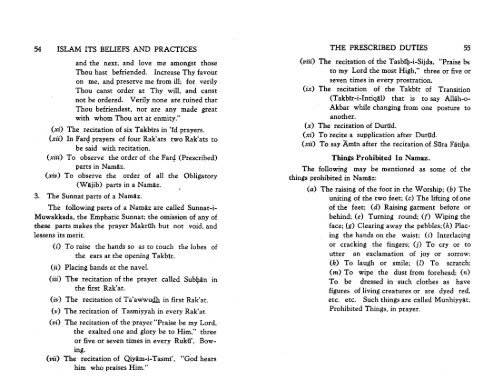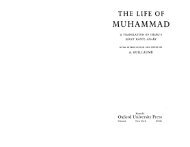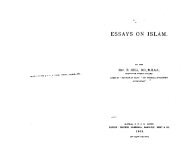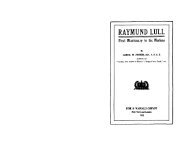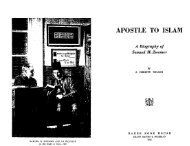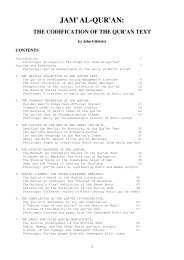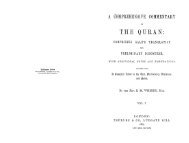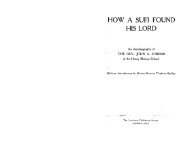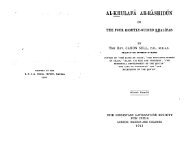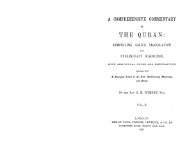Islam Its Belief and Practices - Radical Truth
Islam Its Belief and Practices - Radical Truth
Islam Its Belief and Practices - Radical Truth
You also want an ePaper? Increase the reach of your titles
YUMPU automatically turns print PDFs into web optimized ePapers that Google loves.
54 ISLAM ITS BELIEFS AND PRACTICES THE PRESCRIBED DUTIES 55<br />
<strong>and</strong> the next, <strong>and</strong> love me amongst those<br />
Thou hast befriended. Increase Thy favour<br />
on me. <strong>and</strong> preserve me from ill; for verily<br />
Thou canst order at Thy will, <strong>and</strong> canst<br />
not be ordered. Verily none are ruined that<br />
Thou befriendest, nor are any made great<br />
with whom Thou art at enmity,"<br />
(xi) The recitation of six Takbirs in 'ld prayers.<br />
(xii) In Farc;! prayers of four Rak'ats two Rak'ats to<br />
be said with recitation.<br />
(xiii) To observe the order of the Farc;! (Prescribed)<br />
parts in Namaz.<br />
(xiv) To observe the order of all the Obligatory<br />
(Wajib) parts in a Namaz.<br />
3. The Sunnat parts of a Namaz.<br />
The following parts of a Namaz are called Sunnat-i<br />
Muwakkada. the Emphatic Sunnat; the omission of any of<br />
these parts makes the prayer Makruh but not void, <strong>and</strong><br />
lessens its merit.<br />
(i) To raise the h<strong>and</strong>s so as to touch the lobes of<br />
the ears at the opening Takblr.<br />
(ii) Placing h<strong>and</strong>s at the navel.<br />
(iii) The recitation of the prayer called SubQ.an in<br />
the first Rak'at.<br />
(iv) The recitation of Ta'awwudh in first Rak'at.<br />
(v) The recitation of Tasmiyyah in every Rak'at.<br />
(vi) The recitation of the prayer "Praise be my Lord.<br />
the exalted one <strong>and</strong> glory be to Him." three<br />
or five or seven times in every Ruku', Bowing.<br />
(vii) The recitation of Qiyam-i-Tasml'. "God hears<br />
him who praises Him."<br />
(viii) The recitation of the TasblQ.-i-Sijda. "Praise b...<br />
to my Lord the most High," three or five or<br />
seven times in every prostration.<br />
(ix) The recitation of the Takblr of Transition<br />
(Takblr-i-Intiqal) that is to say Allah-o<br />
Akbar while changing from one posture to<br />
another.<br />
(x) The recitation of Durud.<br />
(xi) To recite a supplication after Durud.<br />
(xii) To say Amln after the recitation of Sura FatiQ.a.<br />
Things Prohihited In Namaz.<br />
The following may be mentioned as some of the<br />
things prohibited in Namaz:<br />
(a) The raising of the foot in the Worship; (b) The<br />
uniting of the two feet; (cl The lifting of one<br />
of the feet; (d) Raising garment before or<br />
behind; (el Turning round; (f) Wiping the<br />
face; (g) Clearing away the pebbles; (h) Placing<br />
the h<strong>and</strong>s on the waist; (i) Interlacing<br />
or cracking the fingers; (j) To cry or to<br />
utter an exclamation of joy or sorrow;<br />
(k) To laugh or smile; (I) To scratch;<br />
(m) To wipe the dust from forehead; (n)<br />
To be dressed in such clothes as have<br />
figure~ of living creatures or are dyed red.<br />
etc. etc. Such things are called Munhiyyat,<br />
Prohibited Things. in prayer.


